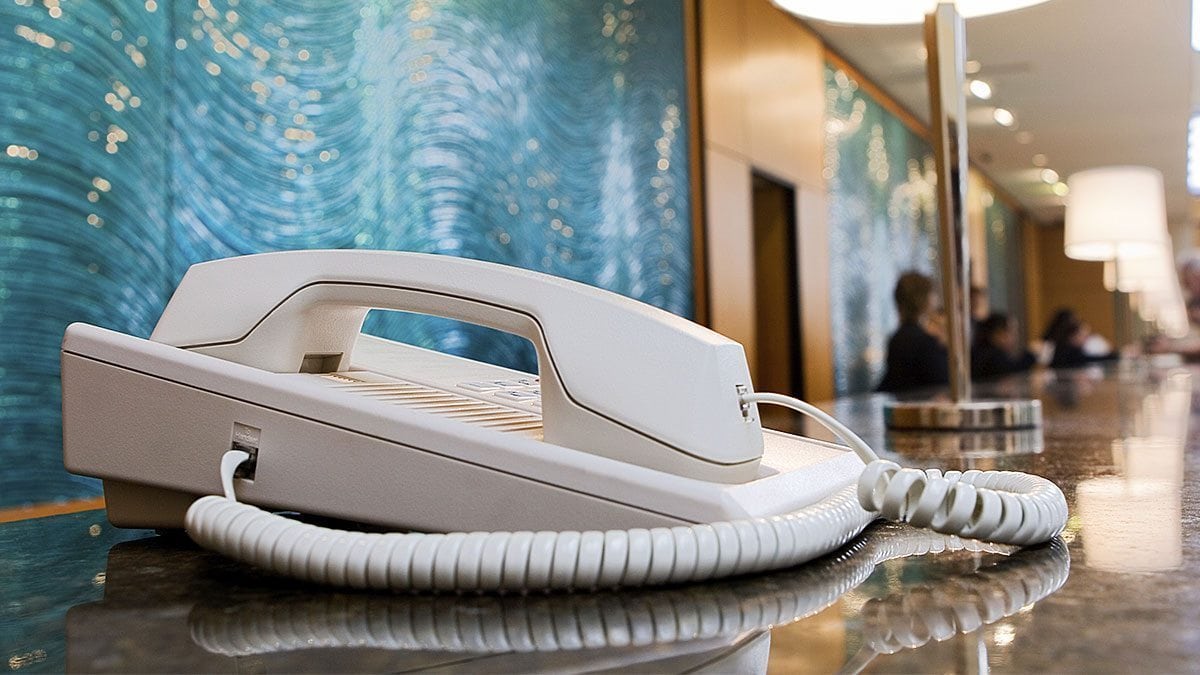Why, in an age where almost everyone has a cell phone, do hotels still use landlines? The landline may seem like a relic of the past, but for hotel managers worldwide, it remains an important pillar of their professional lives.
If you’re interested in breaking into the fast-paced field of tourism and hospitality, you may be surprised that landline phones are still so widely used and loved. Hotels are known for offering state-of-the-art service and certain luxuries guests don’t enjoy at home, but when it comes to phones, hotels remain plugged-in.
Read on for five reasons hospitality training professionals still love the landline.
1. A Simple, Reliable Way for Guests to Book Hotel Stays
It’s common knowledge that established organizations and hospitality sites often provide a toll-free number for easy access to information in addition to online forms of contact. While the internet has dramatically changed the way people communicate, it has not displaced phones as the primary method for people to reach hotels.
A study by Pew Internet reports that 20 percent of adults don’t use the internet for these kinds of services, limiting the channels by which they can make bookings, set reservations, inquire about services, and so forth. Landlines make it easy for customers to get in touch and receive the kind of reliable, engaging service hospitality managers are known for.
2. Helping Hospitality Industries Promote Safety
Landlines are a fundamental tool for promoting safety in hotels. Because landlines operate independently of power lines, damage to a transformer or generator doesn’t impair a guest’s ability to call for help. In the case of a prolonged blackout, landlines maintain communication, whereas cell phones require frequent charging and web communication is curtailed by the internet’s reliance on electricity.
The presence of a landline in every room also guarantees the grads of hotel management training a way to contact guests in the case of an emergency. While it takes just one thrown breaker or downed cell phone tower to impair a cell phone or WiFi router, landlines are harder to take out of service.

Even with advancements in communication technology, hotel landlines have endured.
3. Keeping Guests and Employees Connected to Various Hotel Services
Teamwork among employees is essential to running a successful hospitality business, which is why hospitality management training emphasizes the importance of strong communication skills. Although hotel staff may carry walkie-talkies with them, delicate situations require a more private method of speaking.
This is also true for hotel guests, for whom landlines are a secure way to request service from their rooms. Contacting the front desk or security, ordering room service, and scheduling tourism-related activities cost-free is made possible via landlines. And for those guests with early-morning flights, the importance of a reliable wake-up call can’t be understated.
4. Effectively Manage High Volumes of Communication
As you’ll learn, the best hotel managers are great multitaskers. For times when everyone is trying to get in touch with management at once, a telephone switchboard connected to a landline is the fastest and easiest way to manage a high volume of calls.
Evaluating the priority of a request, asking for patience, ensuring swift delivery of a service, and demonstrating genuine concern for guests is made all the easier with landline phones.
5. Promoting Professionalism
Your training will polish you into a hospitality professional, with high standards you’ll maintain throughout your career. It feels much more dignified and attentive talking on a landline than trying to express genuine care through black and white computer messages or appearing to be gabbing on a cell phone.
Not only is the quality of the call better, but it allows workers to answer a landline phone in the same way thousands of professionals have before them: calmly, attentively, and with confidence, that speaks volumes.
Find out how AOLCC can help you get started!






